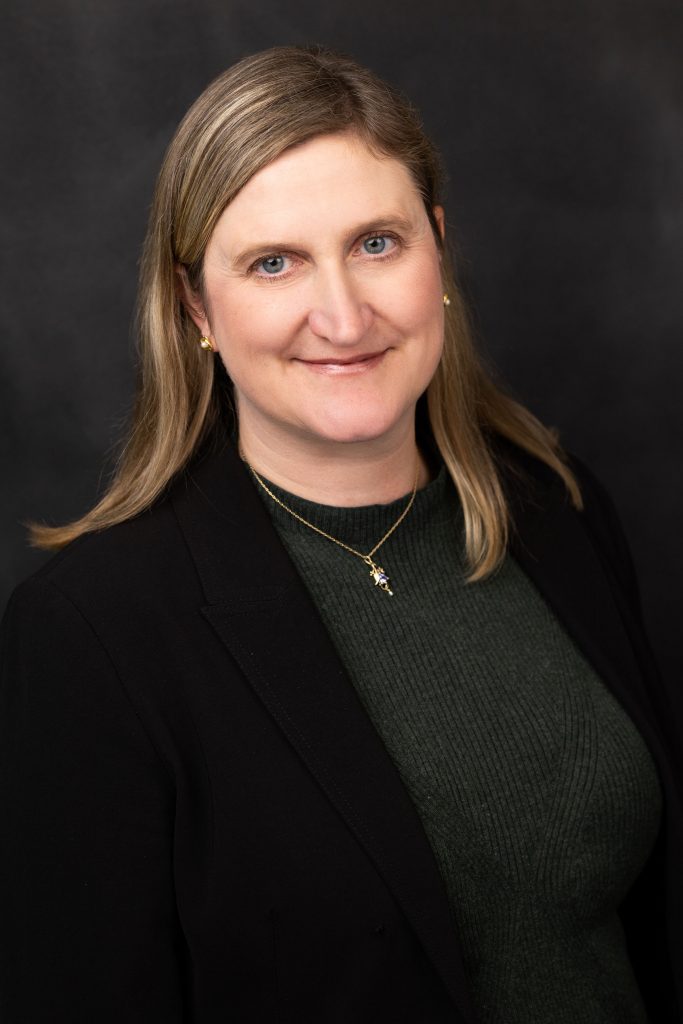Jodi Cooley

Dr. Jodi Cooley is the Executive Director of SNOLAB, the deepest and cleanest underground scientific laboratory in the world. She also holds concurrent appointments as a Professor of Physics at Queen’s University and Adjunct Research Professor at Southern Methodist University. She is an elected Fellow both of the American Association for the Advancement of Science and the American Physical Society.
She graduated in 1992 from the Park Falls Public School System in Wisconsin. She attended the University of Wisconsin in Milwaukee on an athletic scholarship and earned a B.S. degree in Applied Mathematics and Physics in 1997. She earned her Masters in Physics in 2000 and her Ph.D. in Physics in 2003 at the University of Wisconsin-Madison. Her doctoral work was the first search for neutrinos from diffuse astronomical sources with the AMANDA-II neutrino telescope located at the South Pole. Upon graduation she did postdoctoral studies at both MIT and Stanford University. From 2009-2022 she was a Professor of Physics at Southern Methodist University in Dallas, TX.
Dr. Cooley is a Principal Investigator on the SuperCDMS dark matter experiment. She has won numerous awards for her research including an Early Career Award from the National Science Foundation and the Ralph E. Powe Jr. Faculty Enhancement Award from the Oak Ridge Associated Universities. She was named the December 2012 Woman Physicist of the Month by the American Physical Societies Committee on the Status of Women and earned a 2012 HOPE (Honoring our Professor’s Excellence) by SMU. In 2015 she received the Rotunda Outstanding Professor Award. In 2018 she was elected a fellow of the American Association for the Advancement of Science (AAAS).
Dr. Cooley’s current research interest is to improve our understanding of the universe by deciphering the nature of dark matter. The existence of dark matter was first postulated nearly 80 years ago. However, it wasn’t until the few decades a revolution in precision instrumentation definitively identified the existence of dark matter through multiple independent lines of evidence. Modern dark matter detectors, like those located in SNOLAB, use a variety of target materials and complex shielding (including siting them deep underground) to distinguish possible dark matter interactions from more mundane subatomic particle interactions in the same instruments.
Awards and Honors
- Elected Fellow of the American Physical Society (2022)
- The Klopsteg Award of the American Association of Physics Teachers (2019)
- Elected Fellow of the American Association for the Advancement of Science (2019)
- Gerald J. Ford Research Fellowship, SMU (2016)
- Rotunda Outstanding Professor Award, SMU (2015)
- Texas Section APS Robert S. Hyer Award, American Physical Society (2014)
- National Science Foundation (NSF) Career Award (2012)
- American Physical Society (APS) Committee on the Status of Women (CSWP) Women Physicist of the Month (December, 2012)
- Honoring our Professor’s Excellence (HOPE) Award, Southern Methodist University (2012)
- Ralph E. Powe Jr. Faculty Enhancement Award, Oak Ridge Associated Universities (2011)
